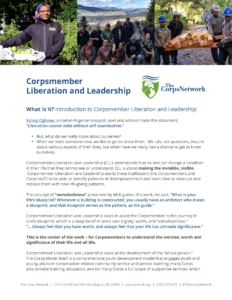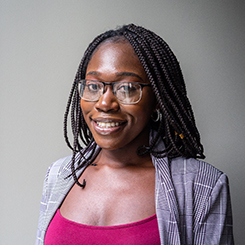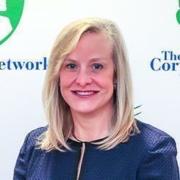
Valuing staff, partners, membership and the youth we serve through centering equity
Introduction
Centering equity is a main goal and the focus of The Corps Network’s 2023-2027 strategic plan.
The Corps Network has a duty as a membership organization and prominent voice in the Corps movement to guide and collaborate with our members to ensure equity is at the forefront of all we do. We aim to promote diversity, equity, inclusion, and justice through trainings, webinars, working groups and several other initiatives. See DEIJ handout here.
The Corps Network’s diversity, equity, inclusion, and justice work is a team effort led by Tia Blakney, Program and DEIJ coordinator (read a statement from Tia here).
Previously, this part of our work took place under the umbrella of the Moving Forward Initiative. Learn more here.
As we move in a new and important direction in our organization, see our equity statement to learn about the work that we are committed to and the first steps towards these goals.
Equity Statement
Read The Corps Network’s Equity Statement
As the National Association of Service and Conservation Corps programs, The Corps Network’s mission is to advance programs that transform young people’s lives and communities through career development, civic engagement, and conservation. Collectively, our programs serve over 20,000 diverse young adults, or Corpsmembers, each year, who work side-by-side to improve communities across the country. We have learned that in order to achieve our mission, we must address the inequities that limit young people, communities, and the environment.
Programs like ours have often held an equality frame – that if we provide people and communities equal access to opportunities, services, and supports, everyone will achieve the same benefits and outcomes. Throughout the history of the Corps movement beginning with the New Deal’s Civilian Conservation Corps (CCC) and throughout the evolution of many youth and Conservation Corps, there has been both discrimination and disparities in who benefits from Corps opportunities, services, and supports. That history and our experience has led us, like many, to recognize that equal opportunity is not enough because individuals do not start in the same place and face different barriers, including interpersonal, institutional, and structural racism. We therefore have embraced an equity frame. We define equity as fairness and justice achieved through systematically assessing disparities in opportunities, outcomes, and representation, and redressing those disparities through targeted actions.
The Moving Forward Initiative is an initiative launched with support from the W.K. Kellogg Foundation in 2017 to explore unconscious bias and structural racism within our own organization and network in order to dismantle barriers and advance opportunities for BIPOC (Black Indigenous People of Color) Corpsmembers and communities.
We have since committed as an organization to justice, equity, diversity, and inclusion. Through this definition and commitment, The Corps Network aims to value all types of diversity, pursue equitable results, and to identify and dismantle inequities, including those present in ourselves, our organization, and the communities we serve. None of us can create change alone and your input and partnership will be essential to move this work forward and help us stay accountable for results.
Next Steps: How the Corps Network is implementing this vision
In our effort to continually learn and improve our practice of equity, TCN:
- Included equity goals within our strategic plan;
- Will pursue an equity audit to develop goals and metrics for continuous learning and improvement;
- Will update our resource library for Member Corps including a toolkit to support Member Corps equity work;
- Annually review and report on activities that advanced equity in our organization and network and the results.
Read a Message from Mary Ellen Sprenkel, President & CEO
Read a Message from Tia Blakney, Program and DEIJ Coordinator
DEIJ Monthly Bulletin Board
Find resources such as trainings, discussion questions, and upcoming events here.
MLK Day – Martin Luther King Jr. Day is January 20, 2025
Today we celebrate the life and legacy of Dr. Martin Luther King Jr. He was a leader who played a significant role in the civil rights movement and committed to equality and justice. Martin Luther King Jr day is a day to honor Dr. King’s legacy and reflect on the progress that has been made in achieving equality, as well as the work that still needs to be done.
Let’s celebrate Dr. King’s legacy by engaging in acts of service and promoting equality in all communities. #MLKDay
- Watch Dr. Martin Luther King give his “How Long, Not Long Speech”
- Watch Dr. Martin Luther King give his final speech “I’ve Been to the Mountaintop”
- Famous Inspirational Quotes by Dr. Martin Luther King, Jr
- Resource
- AmeriCorps
National Day of Racial Healing (day after Martin Luther King’s Day) – National Day of Racial Healing is January 21, 2024
National Day of Racial Healing was created by the W.K. Kellogg in 2017 and is always celebrated the day after Martin Luther King Jr Day. The purpose of this day is to encourage individuals to engage in meaningful conversations around racial healing and to build bridges to create a more inclusive world. This day aims to promote healing, understanding, and unity among individuals and communities. #How We Heal
- Watch this video to hear a word from the President & CEO of W.K. Kellogg Foundation
- Click here to learn more about National Racial Healing Day
- Click here to take action or to see what events are happening in your state.
- Video
- Conversation Guide
Corpsmember Liberation and Leadership
Learn about The Corps Network’s unique workshops designed to support and engage young people and uncover the impact of systemic and institutional oppression on the individual.
Dive Deeper
Please contact Tia Blakney sblakney@corpsnetwork.org to learn more about the below DEIJ workshops from The Corps Network and our partners available at an additional cost.
Staff Experience
- Racial Equity Certification
- Sending the Right Signal Workshop
- Foundational Elements Workshop
Corpsmember Experience
- Corpsmember Liberation and Leadership Workshop and Racial Equity Workbook (TCN membership benefit)
- Sending the Right Signal Workshop
- Corpsmember Liberation and Leadership Virtual Lessons
DEIJ Webinars and Workshops from The Corps Network
DEIJ Blog Content from The Corps Network
Contact:
Tia Blakney
Program and DEIJ Coordinator
sblakney@corpsnetwork.org


































































